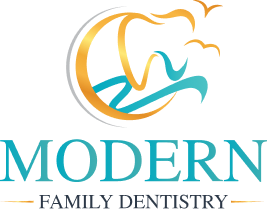
Flawlessly seamless dental restoration of teeth
A dental crown is a custom-fitted cap placed over a damaged or misshapen tooth. It restores the tooth’s appearance and strength and can last for over 15 years. Crowns are also used in dental bridges, implants, or for cosmetic purposes.
What’s The Process Of Getting A Crown?
A dental crown procedure usually requires two office visits and is performed by a dentist.
Here is how we go about it:
Examining and Preparing the Tooth
Similar to any dental procedure, the process commences with a dental examination where your teeth are assessed and cleaned to ensure a smooth placement. If the tooth is fractured or significantly affected by decay, the compromised portions will be removed, allowing the dental crown to effectively shield the tooth from additional decay.
Shaping the Crown
Following that, utilizing dental putty, we will obtain an impression of your teeth, which will serve as a basis for creating porcelain crowns. In the meantime, a temporary dental crown will be placed on your teeth until your next visit. If you require a dental implant to replace a missing tooth, we will also take an impression of the implant and the neighboring teeth. This impression will be utilized by our laboratory to fabricate a personalized crown for you.
Placing the Crown
During your second visit, the temporary crown will be removed and replaced with a permanent one. The crown will be securely attached using strong dental cement or an inconspicuous screw. To finalize the procedure, we will polish the crown and make any necessary adjustments to ensure your comfort and the crown’s stability.
Cost Of Dental Crowns
So what goes into determining the cost of a dental crown?
- The type of crown and the material used
- The location and complexity of the procedure
- The number of crowns needed
- Additional treatments, such as combining the crown with bridges
- Specific supplies and equipment required for your treatment
Please note that an accurate quote for dental treatment cannot be provided over the phone. Your dental needs are unique, and it is essential to consult with a dentist and undergo an examination for precise treatment options and cost estimation. If you have dental insurance, we can provide a quote for you to submit and determine your out-of-pocket expenses beforehand.
Contact us today
to schedule an initial consultation & exam.
Your consultation will include an examination of everything from your teeth, gums and soft tissues to the shape and condition of your bite. Generally, we want to see how your whole mouth looks and functions. Before we plan your treatment we want to know everything about the health and aesthetic of your smile, and, most importantly, what you want to achieve so we can help you get there.
Frequently Asked Questions
No, a dental crown is not an alternative to braces or orthodontic treatment. Dental crowns are primarily used to restore damaged or decayed teeth, while braces and orthodontic treatment focus on correcting tooth alignment and bite issues.
In most cases, getting a dental crown should not significantly affect tooth sensitivity. However, if you already have sensitivity in the tooth before the crown placement, it’s important to discuss this with your dentist, as they can take measures to minimize discomfort and address any underlying issues.
There are generally no specific dietary restrictions with dental crowns. However, it is advisable to avoid chewing on hard objects like ice or using your teeth to open packaging, as this can potentially damage the crown. Maintaining good oral hygiene practices, such as regular brushing, flossing, and routine dental check-ups, is essential for the longevity of your dental crown.
Yes, a dental crown can be placed on a dental implant. Dental implants serve as artificial tooth roots, and a dental crown is typically attached to the implant to replace a missing tooth. This combination provides a functional and natural-looking replacement for a single tooth.
Yes, there are non-metal options available for dental crowns. Porcelain and ceramic crowns are popular choices as they can closely mimic the appearance of natural teeth. These materials are often preferred for their aesthetic appeal, especially for front teeth restorations. However, the choice of crown material may depend on various factors, including the specific requirements of the case and the dentist’s recommendation.

.png)




